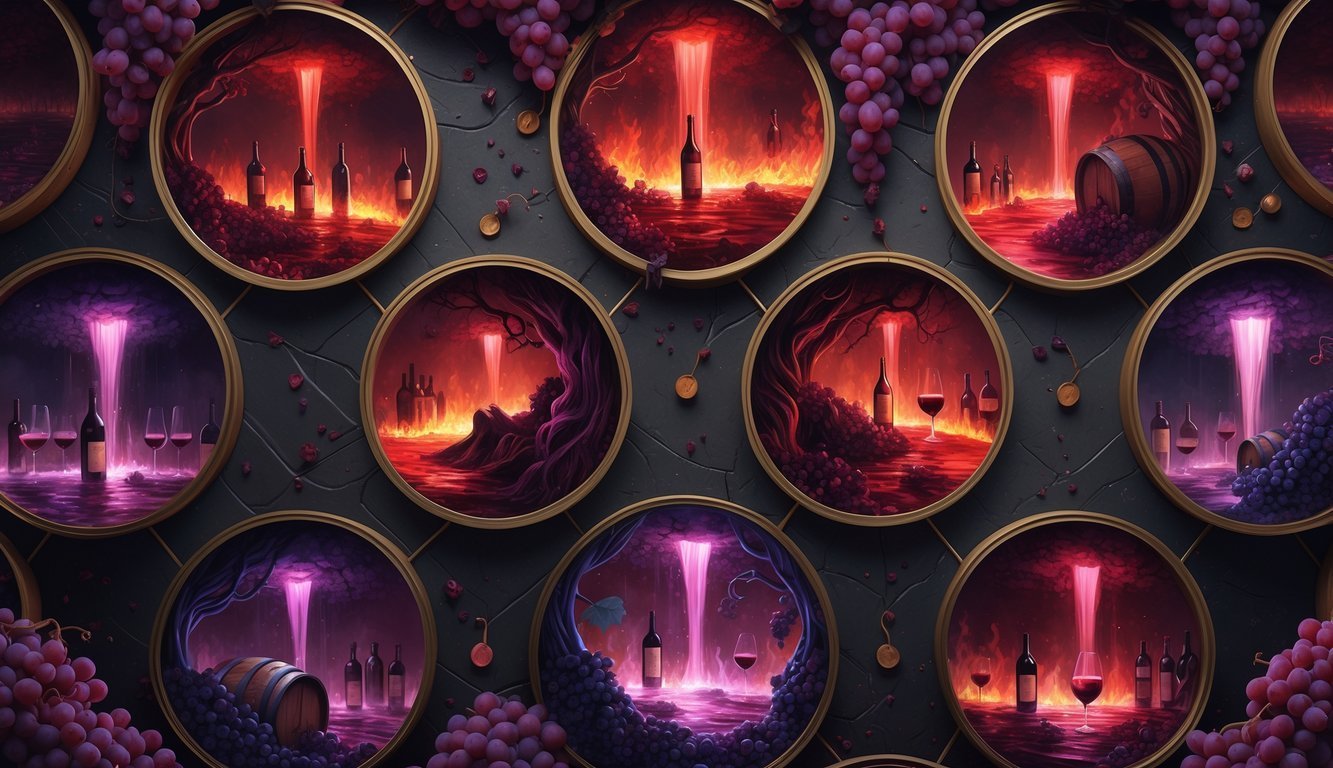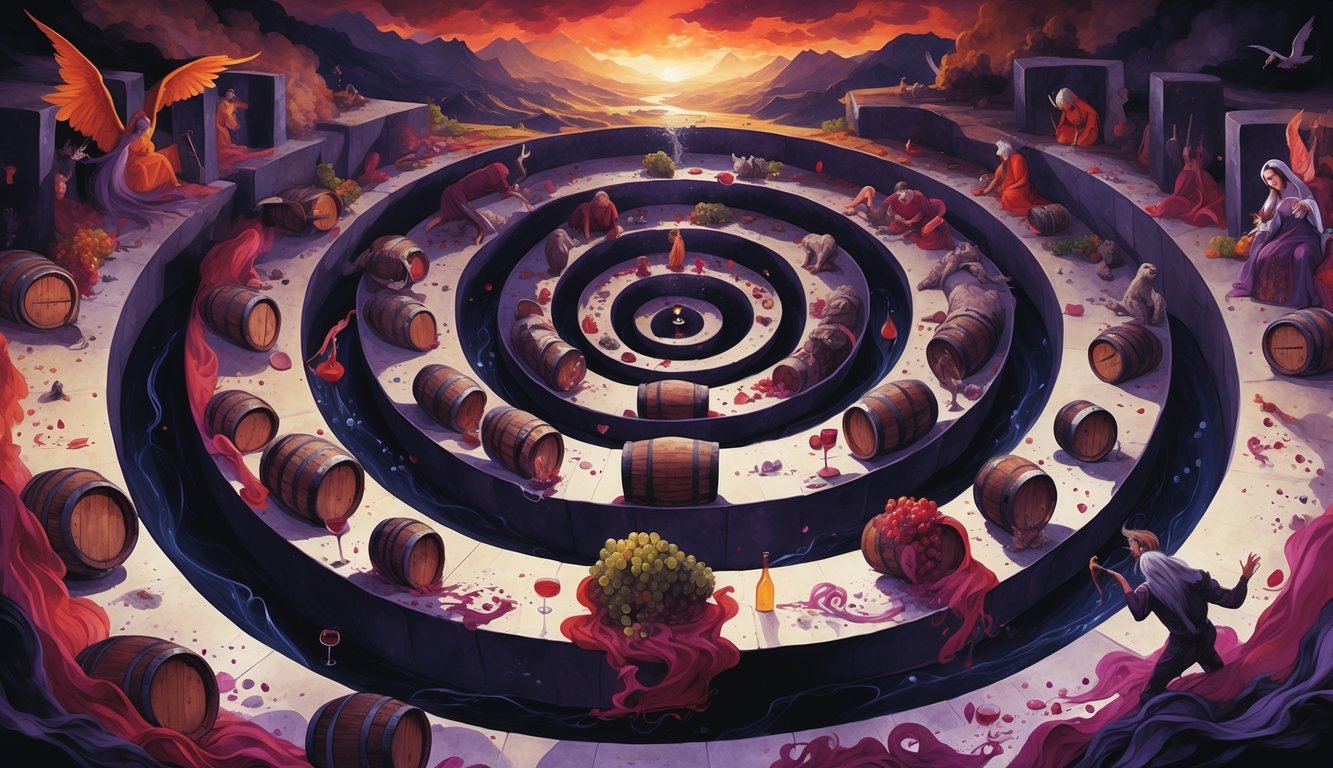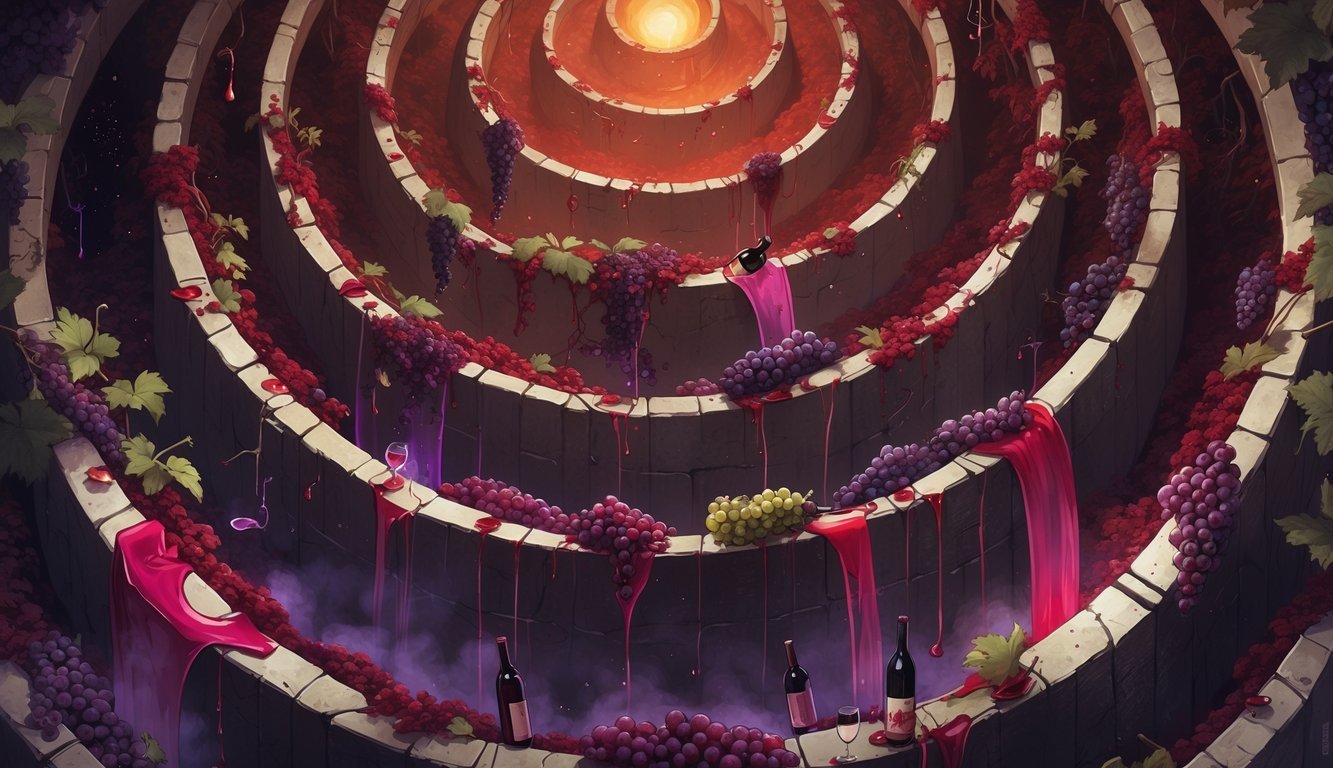PsychNewsDaily Publishers
100 Summit Drive
Burlington, MA, 01803
Telephone: (320) 349-2484
PsychNewsDaily Publishers
100 Summit Drive
Burlington, MA, 01803
Telephone: (320) 349-2484
Wine lovers face various pitfalls that can disrupt their enjoyment, including poor bottle choices, improper storage, and bad pairings, leading to gluttony and despair.

Dante’s Inferno gives us nine circles of Hell, each with its own poetic punishment. But what if wine had its own version? The 9 circles of wine hell call out the classic mistakes and blunders that wine lovers stumble into, turning your wine experience from delightful to disastrous. Let’s take Dante’s structure and give it a playful twist, shining a light on all the ways wine can go wrong.
This isn’t about ancient punishments. It’s about everyday wine blunders that can mess with your enjoyment.
Each “circle” highlights a different issue, from grabbing the wrong bottle to storing wine badly or picking a terrible pairing.
Learning about these pitfalls can save you a lot of headaches, maybe even a hangover or two.
Think of this as your slightly snarky map through a modern Inferno of wine mishaps—and how to dodge them.

Picture a place where your love of wine drags you through all sorts of struggles. Each circle tests a different part of your relationship with wine, from innocent longing to regret.
Some circles tempt you, others hit you with consequences, and a few just haunt you.
Here, your desire for wine feels pure but strong. The perfect glass calls your name, and you can’t stop thinking about the aroma and flavor.
It’s like an angel whispering sweet nothings about wine into your ear.
But the heart of desire can trick you into wanting more than you should. Suddenly, you’re daydreaming about rare bottles and fancy labels, forgetting all about moderation.
This is where you notice your craving, and hopefully, you keep it in check. The first circle feels gentle, but it quietly tests your self-control.
Your relationship with wine starts heating up. Now, wine isn’t just a drink—it’s part of who you are and how you connect with people.
But passion can trip you up if you don’t watch it. You might chase after wines that sound amazing but end up disappointing or confusing you.
Temptation is everywhere here, nudging you toward overdoing it.
This circle shows how love for wine can bring people together, but it can also lead to heartbreak when you let passion take over your common sense.
Welcome to the swamp—the place where overindulgence drags you down. Here, one glass too many becomes a heavy weight.
You end up stuck in a fog, unable to enjoy the wine because you’ve gone overboard.
It’s a sticky, uncomfortable place. Your body protests, your mind goes fuzzy, and you wonder why you didn’t stop sooner.
Sometimes, you’ll meet spirits who warn you about the dangers of gluttony. It’s a tough lesson about balance and respecting your limits.
This circle feels like the darkest one. Despair hangs in the air, thick as mist.
You’ve lost control, and your love for wine now brings pain instead of pleasure.
Old mistakes haunt you, and habits feel like chains you can’t break. The weight of despair presses down hard.
But meeting others who’ve been here can give you hope. Understanding despair is the first step toward change and maybe a healthier relationship with wine.

Wine has always been tangled up with human feelings, rituals, and stories. Its power touches everything—anger, peace, love, weddings, prayers, and even mysteries.
You’ll notice how these ideas echo the classic tales, like Dante’s Divine Comedy.
Wine can stir up anger or quiet sorrow, just like the sullen spirits in Dante’s circles. Sometimes a harsh or bitter wine makes you feel frustrated or down.
This mirrors how anger and silence play out inside us.
Some wines bring out bold energy, while others feel more brooding or mysterious. Both types invite you to notice different sides of yourself.
Anger flares up, but a sullen mood lingers, waiting for you to figure it out.
Wine shows up at moments of love and marriage. It blesses couples and deepens bonds, almost like a prayer for happiness.
Every glass feels like a tiny ritual, pulling people together and connecting them to something bigger.
In some cultures, wine is a treasure that brings hope. At weddings, it celebrates love’s bright but fragile spark.
When you raise your glass, you join a long tradition where wine carries everyone’s best wishes.
Basil isn’t just a garnish in wine culture—it’s a symbol for protection and secrets. Just thinking about basil with wine brings up ideas of hidden mysteries.
In stories, basil stands for hidden truths or spiritual treasures. When you taste wine with herbal notes, you’re tapping into that mystery.
These symbols invite you to look for deeper meanings, as if every sip holds a secret message.
Wine has inspired poets and dreamers forever. It acts as a muse, stirring up creativity and waking up the subconscious.
Poetry about wine connects to hopes, fears, and old memories.
Dreams about wine might show overflowing cups or empty bottles—symbols of plenty or loss. In poetry and dreams, wine becomes a symbol for the soul’s journey, full of passion, mystery, and the search for meaning.

Here’s where you’ll find answers about the meaning and punishments of the nine circles of Hell. You’ll also see how Hell is organized, what each level stands for, and whether this idea pops up in modern times.
Plus, there’s a bit about other parts of Dante’s Divine Comedy.
The nine circles each stand for a different kind of sin, ranked by how severe they are. Each one punishes a specific group, from less serious mistakes to the worst betrayals.
Punishments get nastier as you go deeper. The first circle is for souls who didn’t sin but weren’t baptized, while the ninth is for betrayers who get the coldest, harshest treatment.
Hell looks like a giant funnel, getting tighter as you go down. Each circle is a step deeper into worse sins, with the ninth at the very center for traitors.
Each level highlights a different moral failing. The structure teaches about justice and consequences, helping you see the difference between all these sins.
Absolutely. You’ll spot Dante’s circles in books, movies, and even games. People use the idea to describe all sorts of tough or “hellish” experiences.
Absolutely, Dante’s work goes beyond just Hell. He also takes us through Purgatory and Heaven.
After Hell, the story shifts focus. Souls start working toward forgiveness and hope to reach divine happiness.